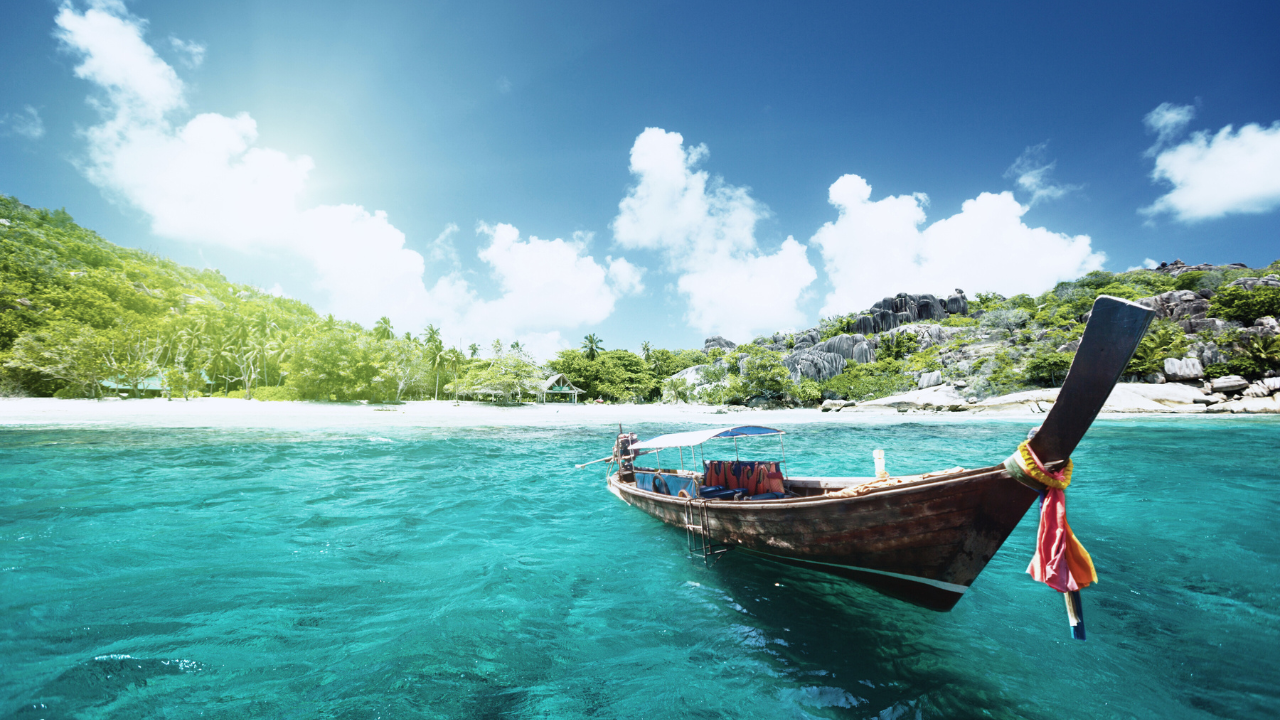Why Thailand's Tourism Industry Is Struggling And What Needs to Change

From 2011-2016 I called Thailand home. I worked as an English teacher building my side thing that's now my main thing and I was lucky I got to see Thailand before every passport bro and their mom started talking about this place.
Once I came back in 2022, the energy that once made Thailand the travel capital of Asia, feel off for some reason.
Since reopening after COVID, tourism numbers have never fully returned to what they once were. Arrivals are down compared to pre-pandemic levels, spending per visitor has dropped, and the type of travelers coming in has changed.
Budget travelers are staying shorter, while high-end tourists are choosing other destinations. The gap between potential and performance keeps widening.
In my view, there are three main reasons Thailand's tourism market is in trouble right now, and each one points to a deeper structural issue. Spoiler alert, none have anything to do with where tourists are from.
1. The Global Economic Reality
Let's start with the obvious. The world's economy is hurting. Inflation, unstable currencies, and rising costs of living mean fewer people are booking long-haul vacations.
When your rent, groceries, and student loans all cost more, "two weeks in Thailand" starts to feel less like a must-do and more like a luxury.
Add in the stronger Thai baht, and you've got a destination that's simply not as affordable as it used to be for many. This hurts the country's biggest visitor markets like Europe, China, and even other parts of Asia.
Tourism has long been one of Thailand's economic lifelines, but over-reliance on it also means vulnerability. When global demand dips, Thailand feels it fast and hard and fast.
2. A Victim of Its Own Success
For the last 20 years, Thailand has been the destination in Asia. Backpackers, honeymooners, retirees, everyone's been here.
And that's part of the problem.
Most travelers with disposable income have already done Thailand once, maybe twice. They've hit Bangkok, Phuket, Chiang Mai, and maybe a quick beach detour to Krabi or Koh Samui.
The mystery's gone.
Now those same travelers are chasing something new. They're heading to Vietnam, Laos, or Japan. Meanwhile, Thailand's tourism product hasn't evolved much. It's selling the same postcards and Elephant pajama pants it's been selling since 2005.
That overexposure is dangerous.
A brand as strong as "Amazing Thailand" can't keep running on autopilot. Eventually, people stop being amazed.
Now here's where we need to be honest.
3. Creative Stagnation and Institutional Laziness
Here's the part that stings and people refuse to say given Thailand's "Save Face" culture.
Thailand's tourism industry got lazy.
The country's marketing remains stuck in the past: beach shots, temples, elephants, "Land of Smiles." It's safe, predictable, and outdated.
Meanwhile, younger creatives, the people actually shaping culture here are shut out of the process.
Tourism boards still rely on glossy billboards and celebrity endorsements instead of empowering local storytellers, filmmakers, and photographers who understand what the modern traveler actually cares about.
From The Beach to White Lotus, Thailand has relied on external narratives to define itself.
But what about the voices inside the country?
What about the chefs, designers, DJs, filmmakers, and entrepreneurs who are already redefining what Thai culture looks like? That's the Thailand people want to experience now, not another resort buffet or elephant selfie.
It's not just about marketing either. The tourism model still caters to short-term visitors, not locals or long-term residents, you know, the ones that kept them opening during COVID.
There's little incentive to build experiences that serve the community or the environment. For a country filled with some of the most innovative, artistic people in Southeast Asia, that's a huge missed opportunity.
The resources are here. Use them.
So What's Next?
Thailand doesn't need more tourists necessarily. It needs better tourism and to stop chasing past glory. Acknowledge what the tourism space is now and adjust accordingly.
It needs leadership willing to hand the mic to younger voices. It needs marketing that reflects the real Thailand, not the brochure version and it needs a shift from volume to value, with fewer visitors spending more time, connecting deeper, and leaving lighter footprints.
The good news is that the potential is still here. The infrastructure, the creativity, the soul, none of that has disappeared. But the system has to evolve.
I don't say any of this as an outsider looking in. I say it as someone who's spend almost a decade of his adult life in this country. Thailand can thrive, not by chasing old glories, but by creating something new.
Until that happens, Thailand risks being remembered as the country that flew too high on its own hype and forgot how to innovate once the world moved on.
But it doesn't have to end that way. Not here. Not in a place this extraordinary.
In the end, Thai people have a choice to make. Will they evolve with the times, or keep selling nostalgia until the world stops buying?
How I can help you:
Teach English Abroad - The real playbook on how ESL works in Thailand. Go abroad.
How to move abroad to either Thailand or Vietnam. Avoid costly mistakes, know what you're getting into and navigate expat life easily 👇




